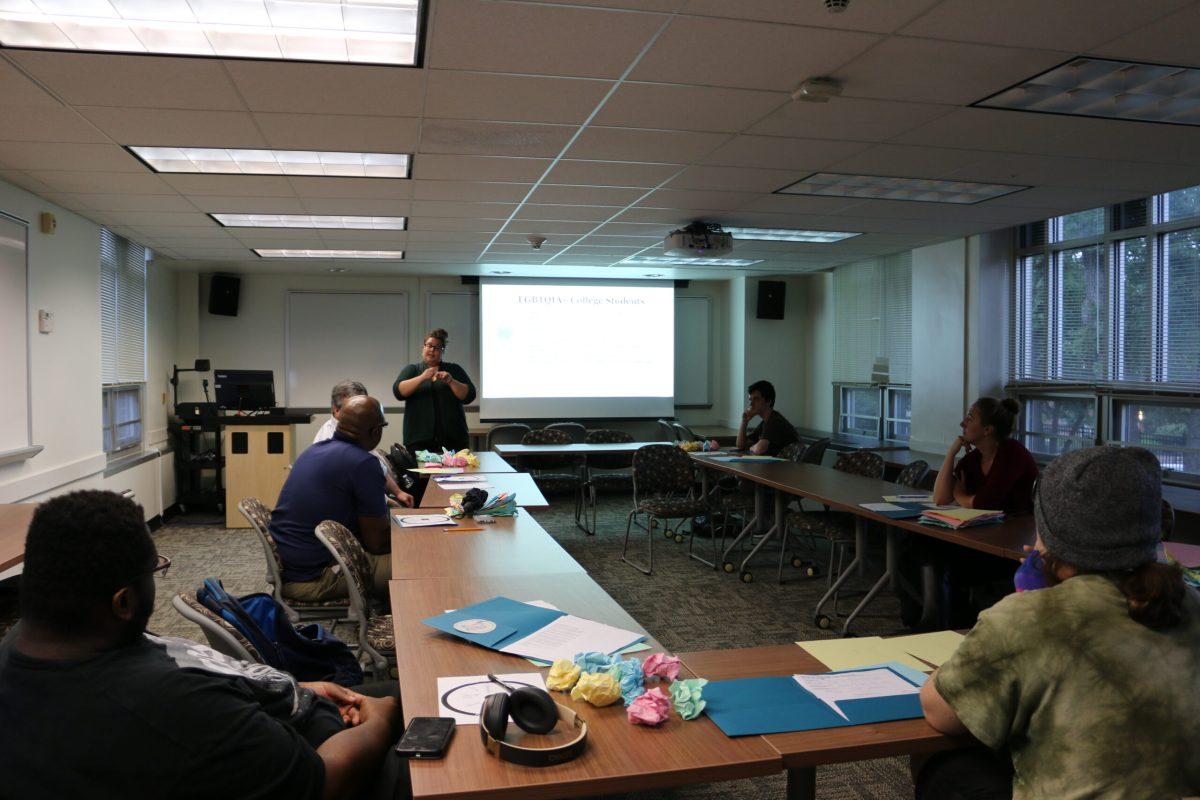Rowan’s Office of Social Justice, Inclusion and Conflict Resolution held a safe zone training session at Hawthorne Hall in order to help those better under understand LGBTQIA+ issues and concerns.
The two-hour session on Thursday helped those who participated in the training to understand ways to better communicate those in the LGBTQIA+ community, as well as bring to light some of the hardships they face almost everyday.
Leading the training session Dr. JoAnna Murphy, assistant director for women’s inclusion and interim assistant director for LGBTQIA+ programs at Rowan, who outlined ways for better communication with people of all walks of life. Throughout the session, Murphy expressed to the participants the idea of moving beyond tolerance to acceptance and that, “We’re never just one thing.”
The participants engaged in question and answer exercises, learned the importance of gender neutral/inclusive language, as well as microaggressions. However, the exercise that had the most impact on the participants was a paper exercise that detailed the struggles LGBTQIA+ individuals face when they come out to their loved ones.
It highlights the risks gay people have when they come out to their loved ones, as well as simulate the loss of control associated with being outed.
As the session began to end, Murphy highlighted some resources at Rowan that are very beneficial for those who were there. Nevertheless, the participants felt that they learned quite a lot throughout the two hour session.
“The most impactful aspect of the program was the oppression sheet because it helped me recognize my privilege and recognized what I have compared to what others may or may not have,” said junior radio, television and film major Vince Ceraso.
Through the assistance of the program, Ceraso hopes to be a better ally for the community.
Though the safe zone training itself is the second one that Murphy facilitated this semester, people who’ve participated in the program generally receive the training very well.
“So far I haven’t gotten any negative feedback,” she said. “And people seem to be appreciative that we offer a space where they can learn more and be better allies as well as for community members to see people in the room who might end up being their allies.”
Lastly, Murphy expresses the impact that some of the exercises may have on those participating in the training.
“It seems to really have a big impact on the individuals in the training because it’s an exercise in empathy,” Murphy said. “Due to this, it often reflects positively around the room and the exercises seem to be people’s favorite part.”
For questions/comments about this story, email news@thewhitonline.com or tweet @TheWhitOnline.
























































































































































!["Working with [Dr. Lynch] is always a learning experience for me. She is a treasure,” said Thomas. - Staff Writer / Kacie Scibilia](https://thewhitonline.com/wp-content/uploads/2025/04/choir-1-1200x694.jpg)










































